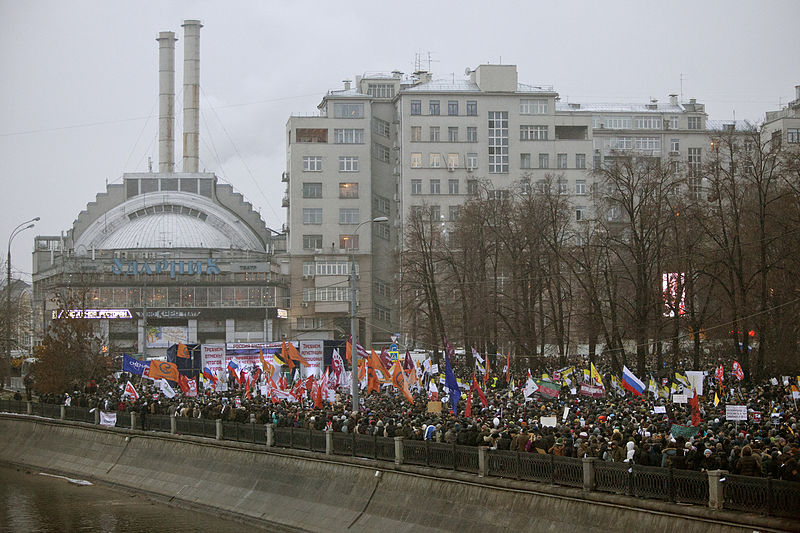Prosperity and Protest in Russia and Beyond
The disconnect between liberalizing economics and authoritarian politics is shaking Russia. China will be next.
 It will be fascinating to watch whatever comes out of the remarkable post-election protests in Russia. There are immediate questions of U.S. policy toward Russia, of course, of the sort that Paul Saunders discusses elsewhere in these spaces. But the protests also raise a larger question, with implications beyond Russia, of the relationship between economic and political development. The core issue is whether centers of economic power can persist for long without a distribution of political power that reflects it. Does the creation or enhancement of economic strength lead inevitably to ultimately irresistible demands for political change?
It will be fascinating to watch whatever comes out of the remarkable post-election protests in Russia. There are immediate questions of U.S. policy toward Russia, of course, of the sort that Paul Saunders discusses elsewhere in these spaces. But the protests also raise a larger question, with implications beyond Russia, of the relationship between economic and political development. The core issue is whether centers of economic power can persist for long without a distribution of political power that reflects it. Does the creation or enhancement of economic strength lead inevitably to ultimately irresistible demands for political change?
Vladimir Putin evidently has seen what he regards as a political danger along these lines, to which he has responded with the persecution and imprisonment of the most prominent and politically daring of the nouveau super-rich, Mikhail Khodorkovsky. We will now see what happens with the just-declared presidential candidacy of another oligarch (and owner, among other things, of the New Jersey Nets), Mikhail Prokhorov. But the recent protests are not the work of the oligarchs. Nor are they primarily the doing of the economically disadvantaged or of the sorts of intelligentsia who led protests when the Soviet Union collapsed two decades ago. As the New York Times describes it, the vanguard of the most recent protests is an urban middle class that economically has done fairly well under Putin. Their current unhappiness lends strong support to the idea that economic betterment does stimulate demands for political rights to catch up.
Some of the most interested outside observers of what is going on in Russia are leaders in China. Their country is one of the leading examples, and certainly the most important one, of a disconnect between sweeping, even explosive, economic change on one hand and static, authoritarian politics on the other. And so far the disconnect shows no sign of ending. The current issue of The Economist has a piece about how Bill Clinton's prediction a decade ago that China's joining the World Trade Organization would likely have “a profound impact on human rights and political liberty” has not yet come true. The Chinese Communist Party has so far kept that from happening by adapting its instruments of political control to a free-market economy. It has worked to ensure, for example, that party cells are established in private firms.
One can think of reasons specific to each country as to why China has been better able than Russia to dampen any political reverberations from an economic wave. The Chinese Communist Party's control is institutionalized in ways more directly related to the country's founding myth than is true of Putinism in Russia. But the political-economic story is far from over in either country. The disconnect between economics and politics will have unsettling effects in both nations, even if it takes longer to show up in one of them.
Image: Leonid Faerberg
